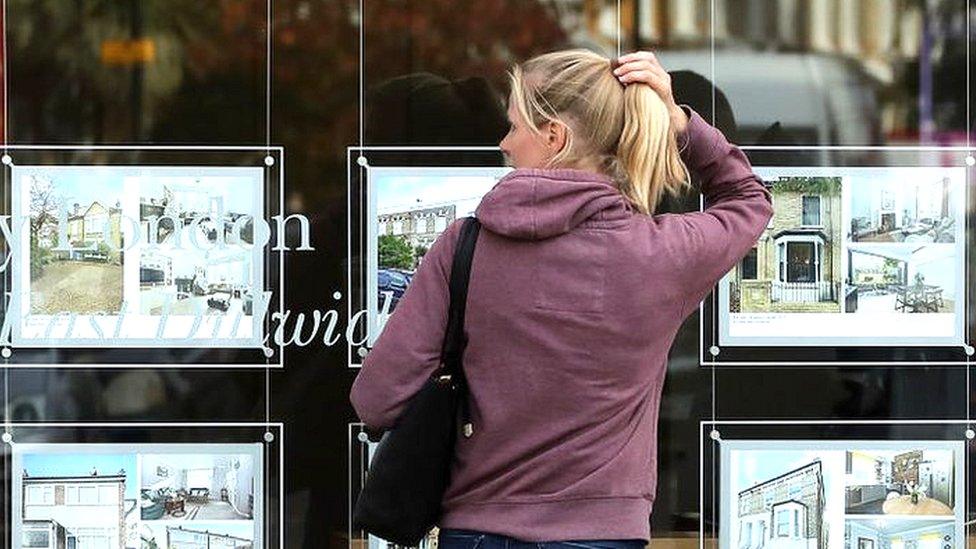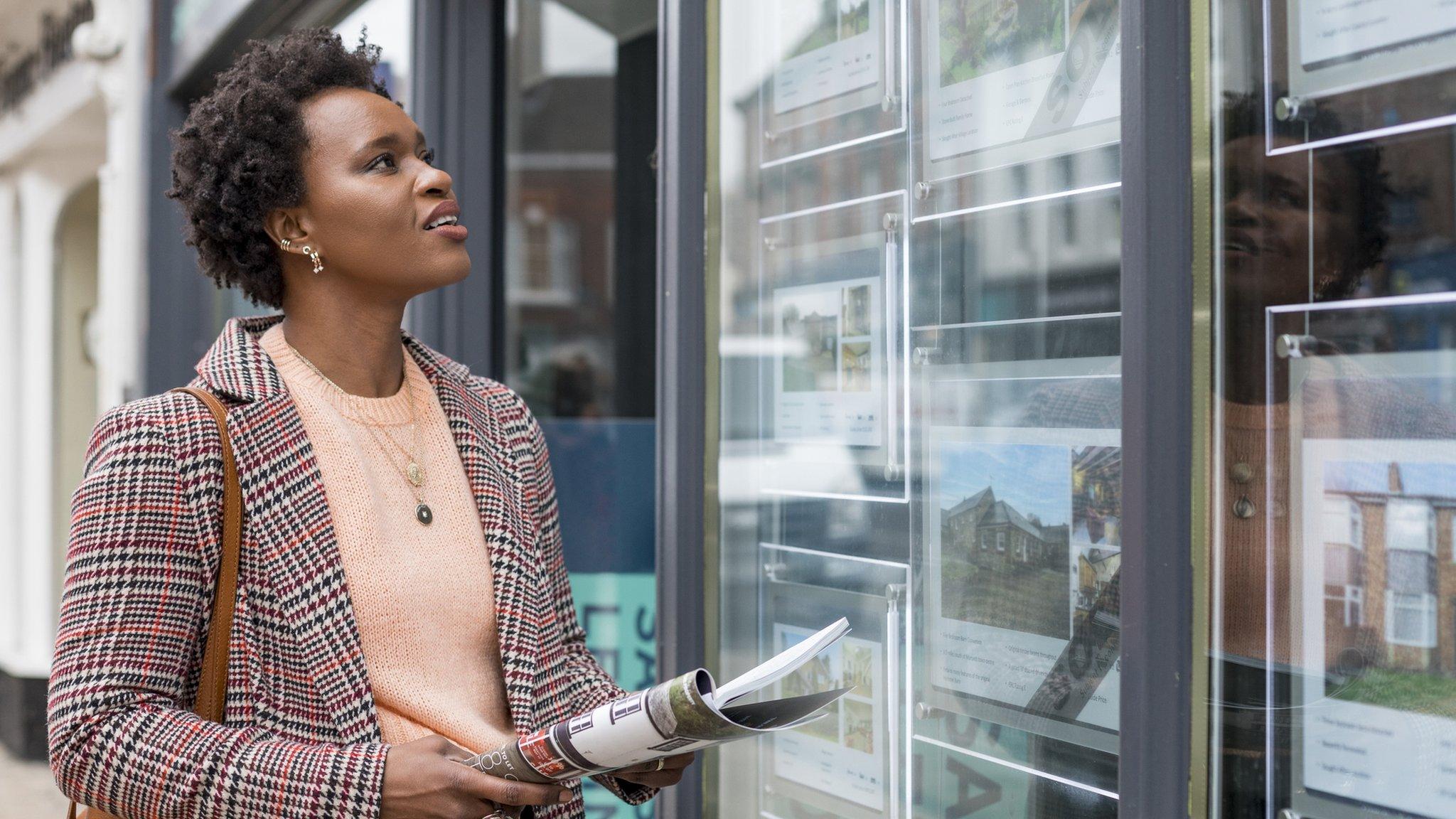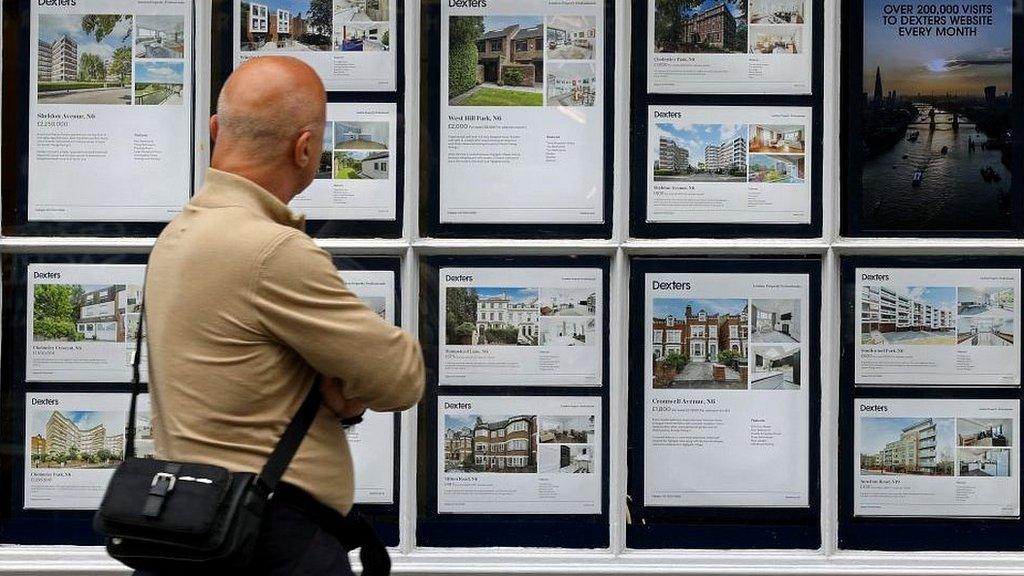Home asking prices see smallest February rise in 22 years
- Published
- comments

The average asking price for a UK home rose by just £14 from January to February, according to property website Rightmove - the lowest increase for the month since its records began in 2001.
The average asking price for a home is now £362,452, it said.
Asking prices normally rise at the start of the year as sellers gear up for the spring selling season.
However, price tags do fluctuate at other times in a year. For example in November and December, they decreased.
Rightmove said higher mortgage rates and living costs were squeezing what people could afford. It follows months of falling house prices and predictions of further declines this year and next.
"Many sellers are breaking with tradition and showing unseasonal initial pricing restraint," Tim Bannister, Rightmove's director of property science, said of the latest figures.
He added buyers were taking more time to "find the right property at the right price" and wanted "greater realism on price".
Up until January house prices in the UK fell for five months in a row, according to building society Nationwide.
Meanwhile annual house price growth slowed to 1.1%, down from 2.8% in December.
Rightmove said the rise in asking prices seen this February was lower than the growth of 0.6% recorded during the 2008 financial crisis.
Part of the reason is higher mortgage rates, which have squeezed purchasing power. Rates have fallen from the 6.65% highs seen after Liz Truss's mini-budget in September but remain far above what they were a year ago.
According to research firm Moneyfacts, average two-year and five-year fixed rate mortgages are still above 5%.
At the same time inflation - the rate at which prices rise - is near a 40-year high, putting pressure on household budgets.
Despite this, Rightmove said buyers were benefiting from "more choice albeit with revised budgets to accommodate higher mortgage rates".
The company said the number of sales agreed was rebounding, but was still 11% down on 2019 levels. They had been down 30% during the aftermath of the mini-budget.
And Tom Bill, head of UK residential research at estate agent Knight Frank, said the housing market had picked up a bit since Christmas.
"Buyers and sellers switched off early for the holidays due to the volatility caused by the mini-budget but have come back surprisingly strongly in 2023," he said.
Knight Frank expects house prices to fall by about 5% this year as household budgets come under pressure.
The Office for Budget Responsibility, the government's official forecaster, has predicted a 9% drop in prices through to Autumn 2024 before prices start to rise again.
Related topics
- Published18 November 2022

- Published6 January 2023
